What to check daily
So what do we check daily? We think it’s important for any serious overlander to at least check a few basics every day, before setting off. Although alarms like EngineWatchdog or MadMan support vehicle safety, it’s important to check engine oil, coolant, brake fluid, and tire condition on an almost daily basis. Checking the levels of your fluids is dead simple, and can prevent a catastrophe down the line. Quickly checking your tires is good practice to see if any damage has been done on the trails in the days prior. A cut in your sidewall might result in a full loss of the tire and a possibly dangerous situation.
Of course, it’s unlikely you’re going to fill up all liquids every day, but keeping an eye on them never hurts.
Daily checks
- Engine oil
- Coolant
- Brake fluid
- Tire condition
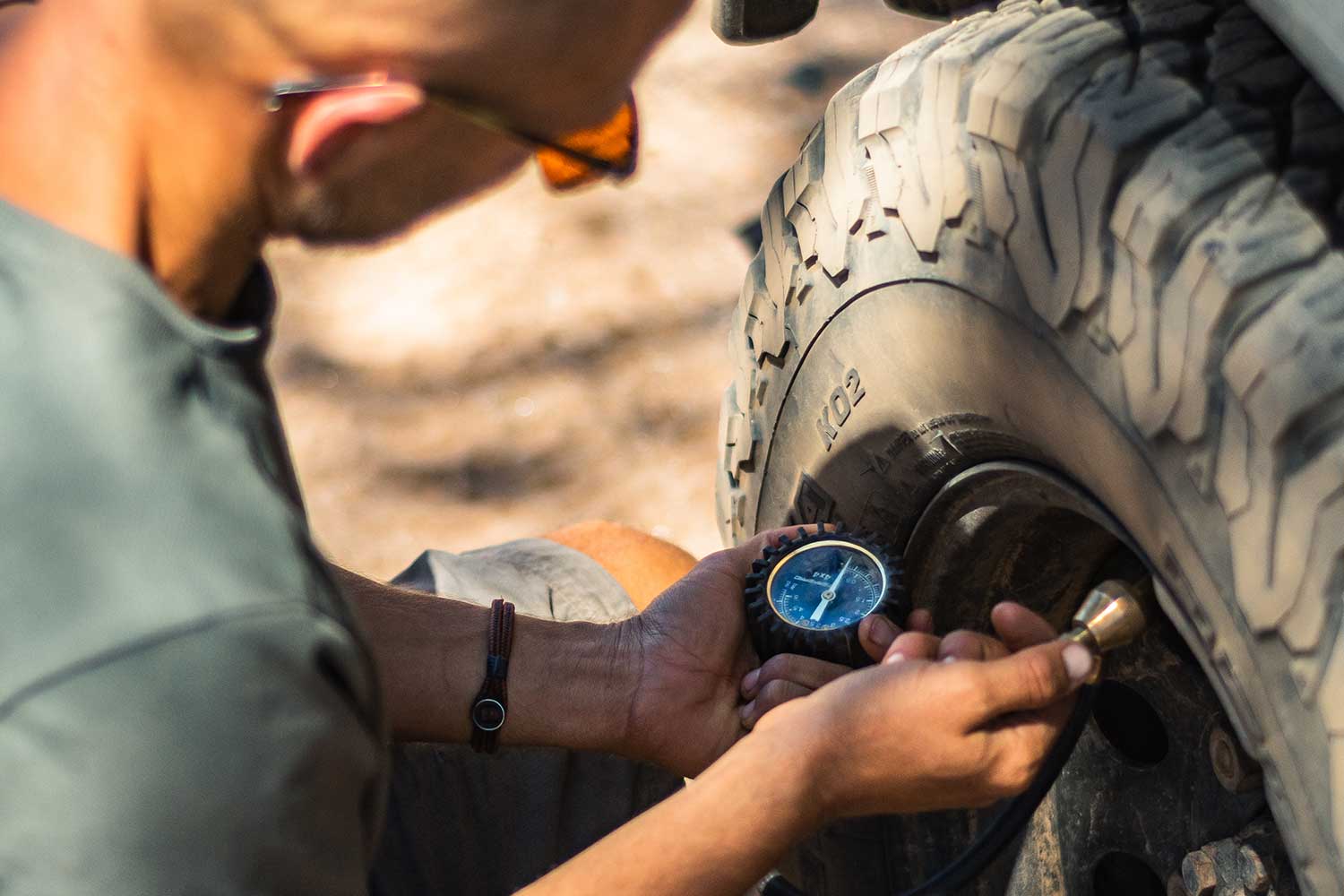
What to check weekly/monthly
Besides the essential daily checks that we do to keep our engine and ourselves safe, there are other parts of the vehicle we check on a weekly to monthly basis. These include clutch fluid, steering fluid, belt conditions, and suspension bolts. Whilst it’s less likely that any of these will cause a serious situation before you notice a change, we believe they are important to check. Tire pressure is another one to check every once in a while, but you’re most likely inflating and deflating your tires so often, that checks aren’t necessary.
Especially the suspension components are important to check, as they easily develop play due to the bad road conditions you are likely to encounter.
Weekly to monthly checks
- Clutch fluid
- Steering fluid
- Belt condition
- Suspension bolts
- Tire pressure
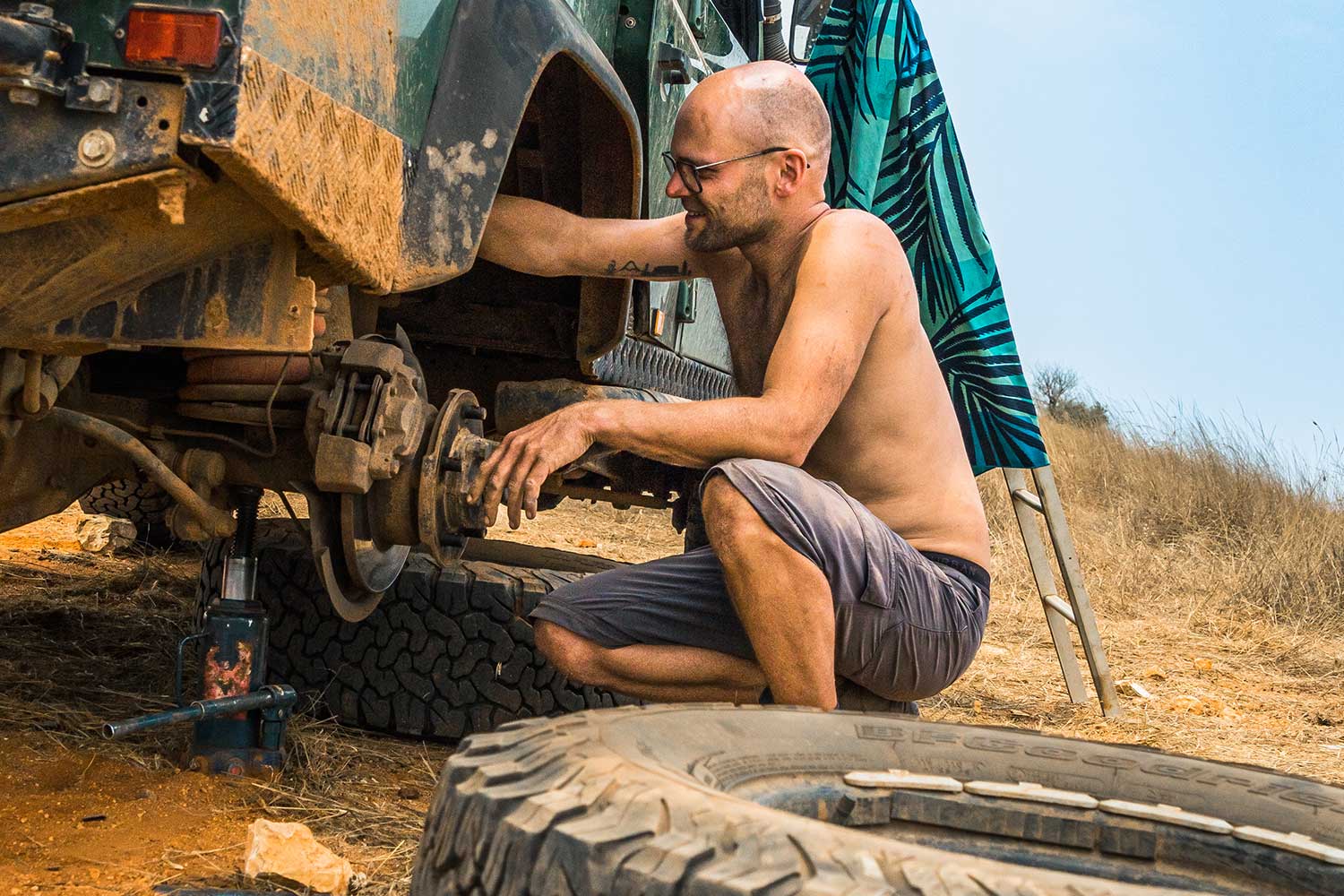
Use your senses
Overall you’re set with checking the above. Of course, these are just general vehicle parts that are easy to check and keep an eye on. You’ll most likely end up fixing a lot more stuff along the way. We love to use our senses when overlanding. That way we might be able to catch a problem before it grows out of control.
Especially when overlanding long-term, you’ll get to know your vehicle like the back of your hand. You know how it sounds, feels, and smells, and therefore you’ll know when something is off. Having this familiarity with the vehicle is paramount, and it will be you who notices problems first, not a mechanic who is doing a quick look around.
We believe it’s super important to get to know your vehicle and check components if you feel something is off.
General rules when using your senses
- You can often hear and feel where a problem originates. Sounds and feels (clonking, etc.) in your butt originate from the rear, whilst if you feel it in your hands/steering it is most likely the front.
- Vibrations can be checked by comparing the difference between being stationary versus driving. Vibrations when stationary? Check your engine. Vibrations when driving? Most likely something in your driveline (unbalanced tire, worn U-joint, etc.).
- If you smell something, first check in with your partner (farts, hand sanitizer, nail polish, etc.). Does it smell like fuel? Or does it smell sweet? The latter might indicate a coolant leak.
Attend little problems before they jeopardize your trip. Use your senses all the time, feel the vehicle, and get to the problem as soon as possible.
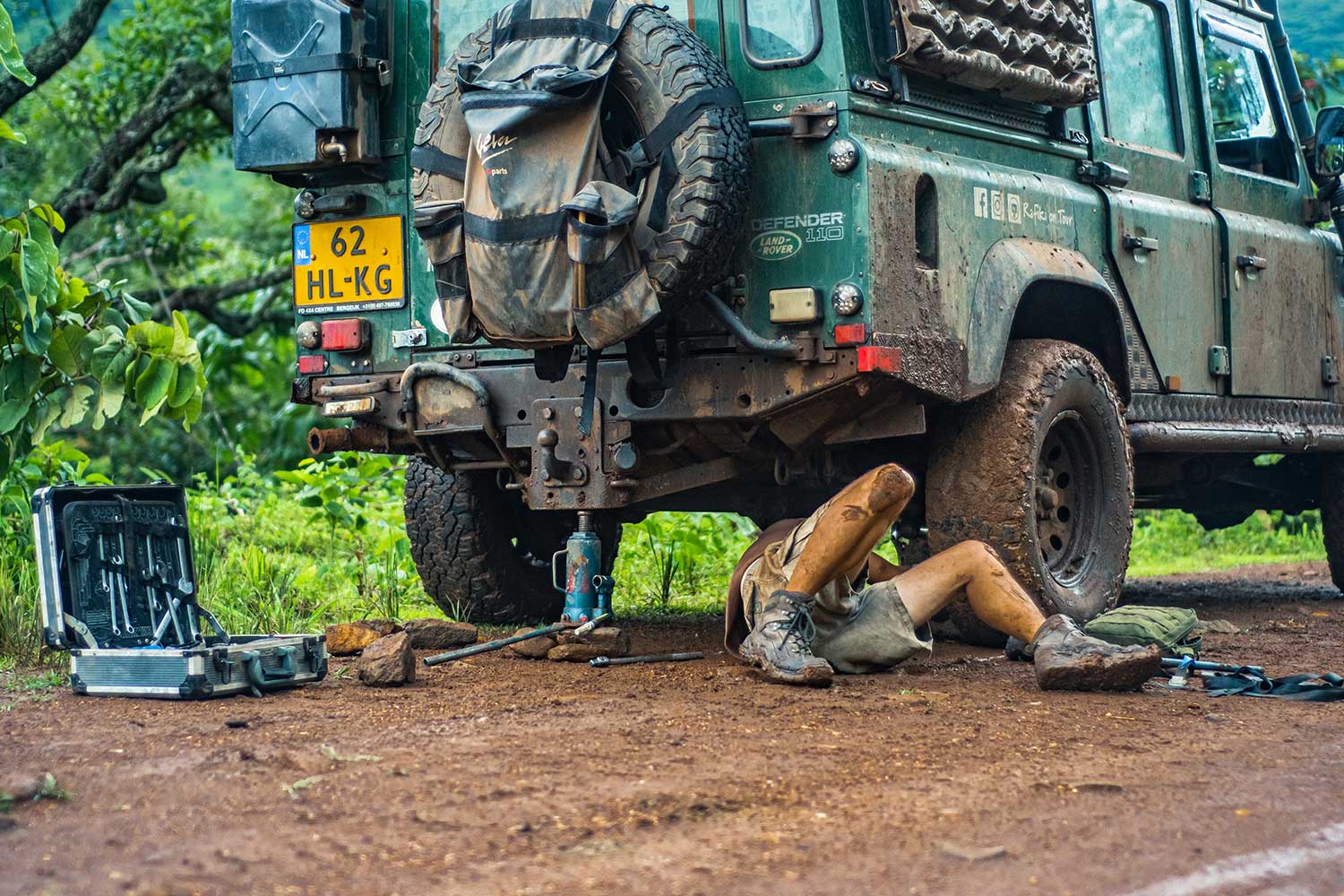
Know how to attend to the following issues
Full-time overlanding is most likely going to result in a lot of checking, all the time. When doing so, it’s important to know when a problem is okay to ignore for now, or when it needs your full attention right away.
Be able to tackle the following problems:
- Punctured tire (fix, or replace)
- Wheel bearing problems (tighten or replace, don’t ignore for too long)
- Suspension play (often a matter of tightening the right bolts, or eventually replacing some bushes)
- Steering play (don’t ignore for too long)
- Electrical issues (can you turn off power to the problematic part, do you know how a multimeter works, can you come up with a bypass solution, and do you have spare wires, fuses, and connectors?)
- Inefficient fuel combustion, noticeable by a vibrating engine or smoke. Check or replace filters, is there water or air in the fuel system, use an injector cleaner, etc.
- Do you have the means to fix a coolant leak? Repair liquid for the radiator, spare hoses, high-pressure tapes, dual-component epoxy, etc.
- Are you able to fill up any of the vehicle’s fluids while in the middle of nowhere?
Good luck with keeping an eye on your vehicle. If you make checking the basics part of your morning routine, the rest will follow naturally. Be aware of your vehicle’s behavior, have some mechanical sympathy, and enjoy the ride!
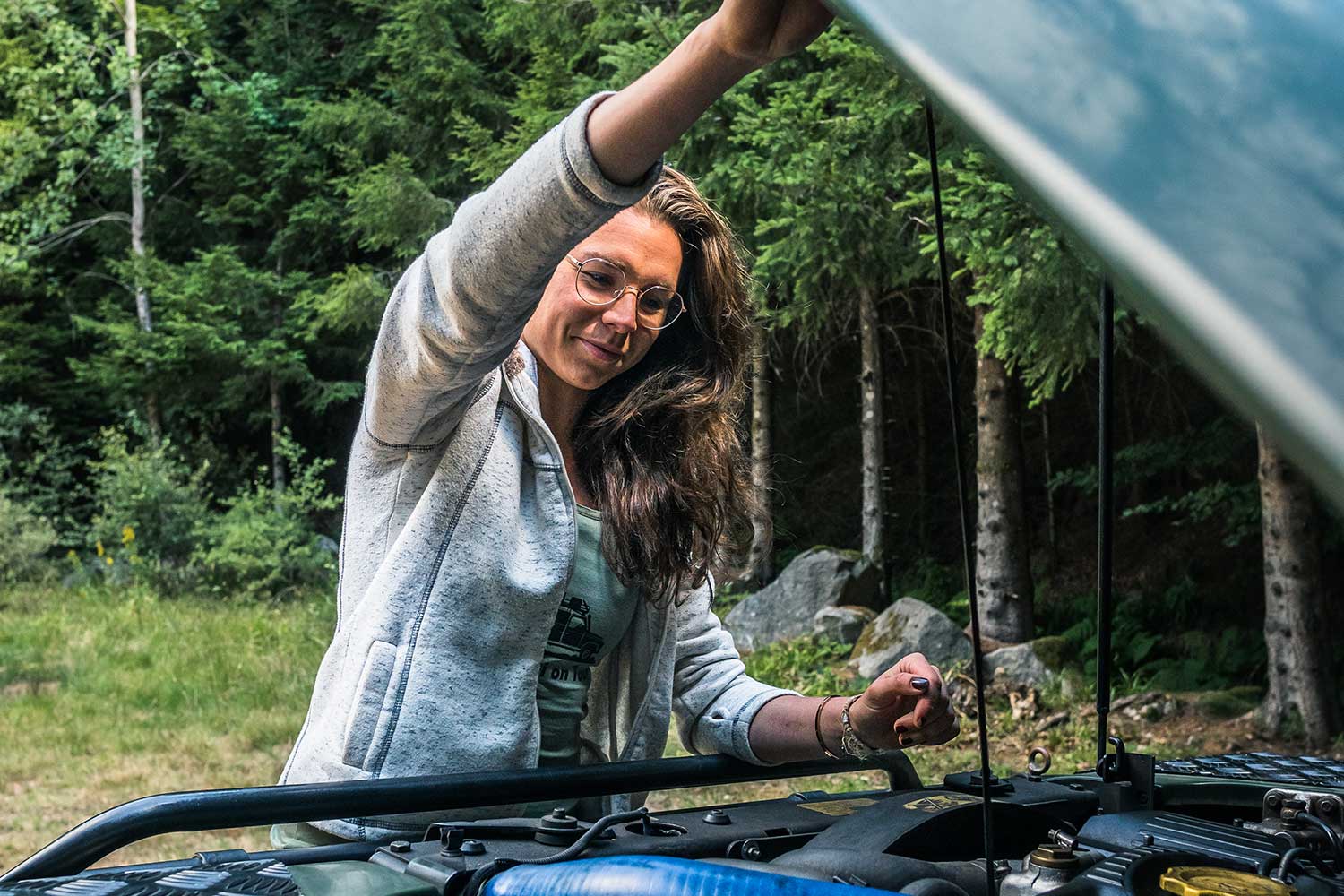

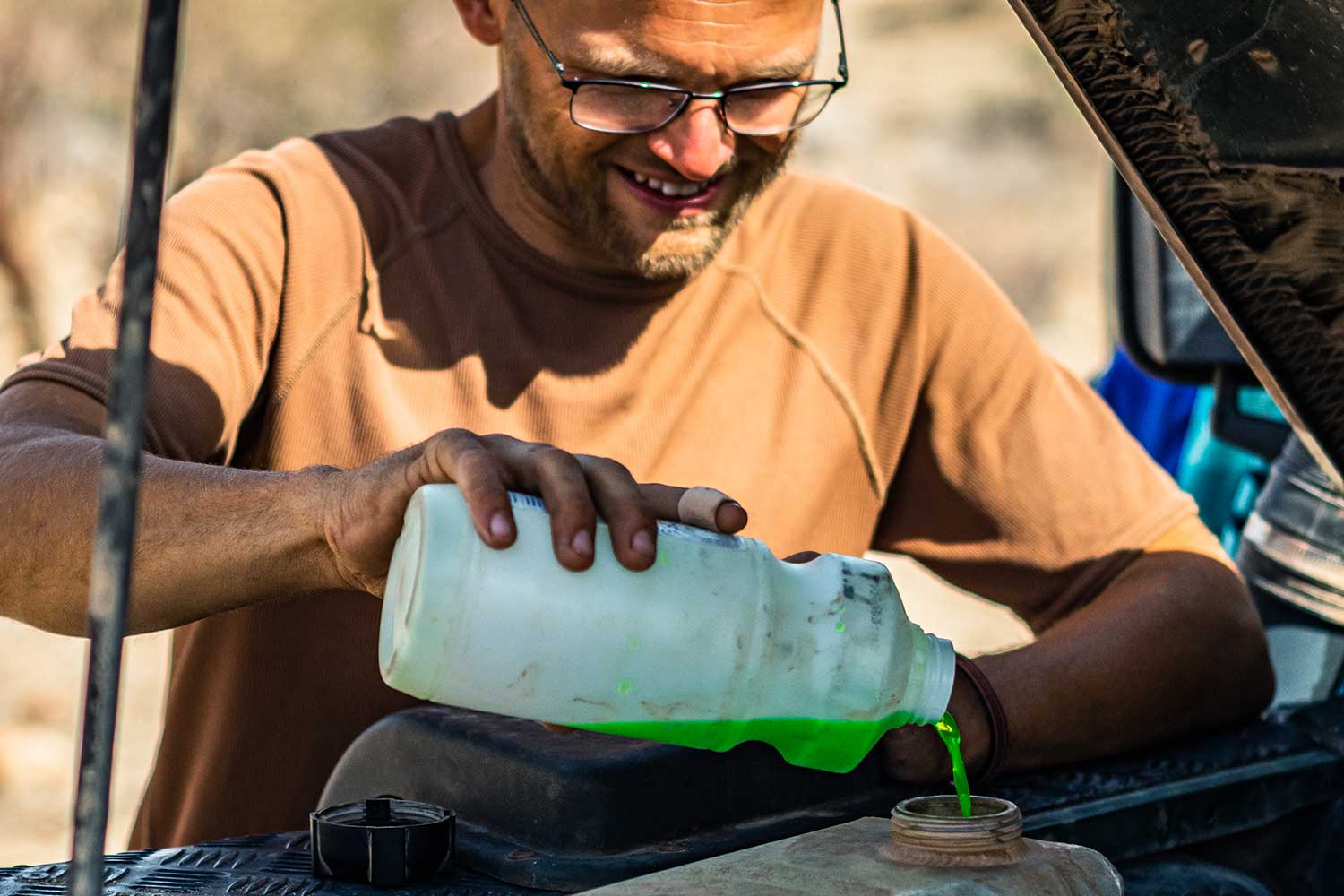


0 Comments